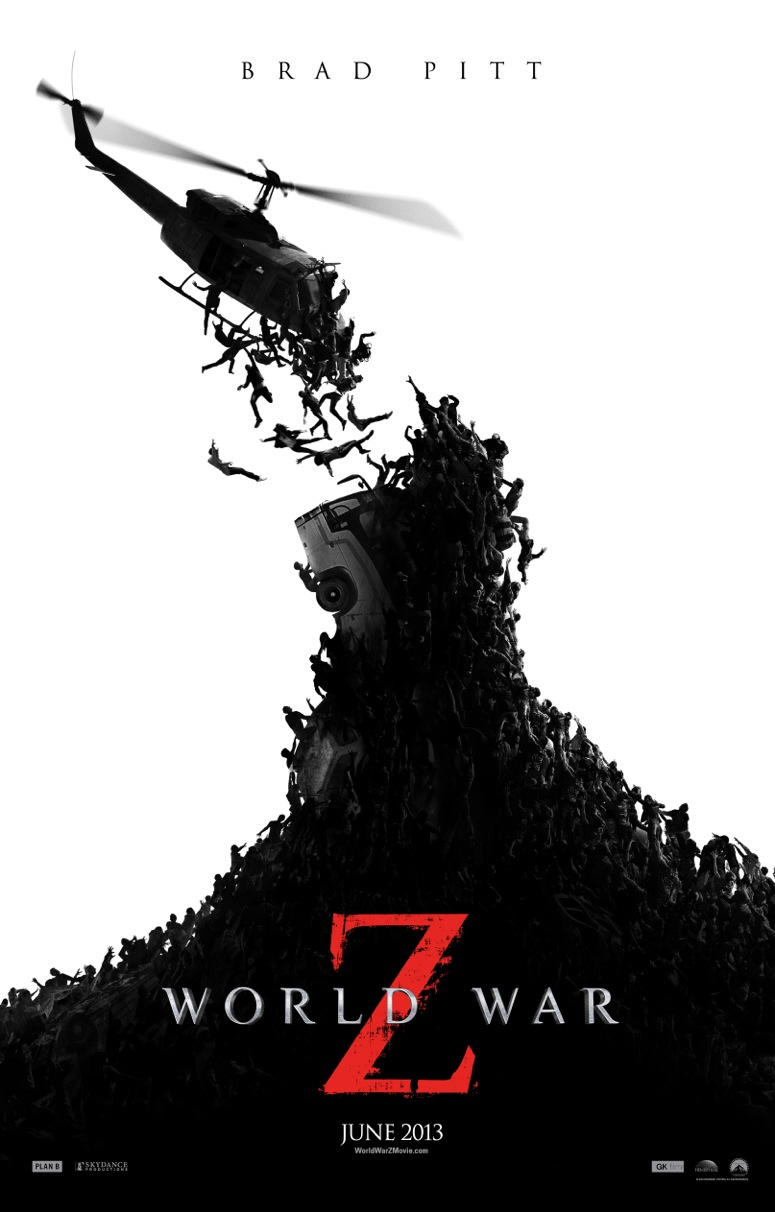 |
In the movie Word War Z, a devoted father and former UN employee Gerry Lane is
driving down the street with his family when zombies attack. A former co-worker
for the UN sends a helicopter to extract Lane and his family, but says they
will get kicked off the safe ship if he doesn't agree to help the cause. Lane
is dragged into the war for love and desire for his family to be safe. Although
Lane is the protagonist in the movie, the ethical situation more directly
involves Captain Speke, the leader of the U.S. military in Vietnam. He chooses
to escort Lane to an aircraft instead of staying safe. When the zombies attack,
he fends them off alone on the battlefield, with his snipers helping him from
afar. After realizing he has been infected with the disease, the snipers ask
via telecom if they should do the honors. Speke responds "It's alright
boys. I got this one"(World War Z), and shoots himself in the head
with dignity and his humanity. Gerry escapes, and proceeds to help humanity
survive.
Utilitarianism is a philosophy in which an individual
carefully considers their actions according to both short and long term
consequences. According to Heather Salazar, "...one should not be
self-centered very often"(Salazar 1393). It is clear that Captain Speke is not
self centered and is extremely aware of both the short and long term
consequences of his actions. He knows that Lane might very well be humanity's
last hope to survive, so he agrees to help him get to the aircraft to escape
after the zombies arrive. This decision is not self-centered because his
decision risks his life and is for the greater good of humanity, not for
himself. Lane reaches the aircraft while Speke is left to be infected by the
zombies. Such a skilled individual would be a deadly zombie, so he makes the
ultimate decision to kill himself before that happens. The educated decision
that Speke ultimately made is very much supported by Utilitarians because he is
sacrificing himself to protect the rest of his soldiers and to the rest of
humanity. He died with his dignity, as well as his humanity.
 |
| Gerry being escorted by soldiers |
Kantianism is a philosophy created by Immanuel
Kant. He stated that each person has their own duties.
And in reality, no two duties can be handled the same way. To act in a way that
is morally right, "...one must be motivated from DUTY, seeking to do what
is right because it is right..." (Salazar 1392). To
analyze Captain Speke's situation, a Kantian would use the categorical
imperative. The first step would be to formulate a maxim for action. According
to Heather Salazar, "Developing a statement of the action will
allow you and others to analyze whether the action is correct or not"
(Salazar 5), and a Kantian would argue that the statement Captain Speke would
make in this case would be "I need to put my life on the line for the sake
of humanity". The next step is to decide whether it is coming from good
will, which clearly a Kantian would argue that both aiding Lane and killing
himself are both from good will. A Kantian could follow these steps for the
categorical imperative and agree that Captain Speke risking his life for Gerry
Lane is ethically right and would agree with the decision.
Personally, I also agree with Captain Speke in his decisions to help Gerry and
kill himself before he turned hostile. In a world like that, death is imminent.
Zombies were clearly taking over the world, and humanity was dwindling down
fast. I feel like he wanted to die with a purpose, and he realized how much
Gerry meant to humanity. For the good of all people, he sacrificed himself by
putting himself on the front lines-something he didn't have to do. He wanted to
help. Captain Speke lived up to his high rank of captain in the military by his
actions in my mind. I think both philosophies really nail the point that this
was the right decision, but I feel as though Utilitarianism can explain it to a
better extent. The long term reaction was the potential of humanity to be
saved, which at the time of the decisions was dwindling rapidly. This reaction,
by far, trumps the short term reaction of his own death. I believe this because
one human, especially a human who swore to give his life to a country, should be
sacrificed for the good of humanity in the context on an apocalypse.
Resources
Salazar, Heather. “Kantian Business
Ethics,” in Business in Ethical Focus, ed. Fritz Allhoff and Anand
J. Vaidya. Broadview Press, 2008. p.1392.
Salazar, Heather. “Self-Interest,” The
New Catholic Encyclopedia, Series on Ethics and Morality, ed. by Robert Fastiggi.
Gale Cengage Learning, 2013.
World War Z. Dir. Marc Forster. Perf. Brad Pitt. Plan B Entertainment, 2013. Film.
No comments:
Post a Comment